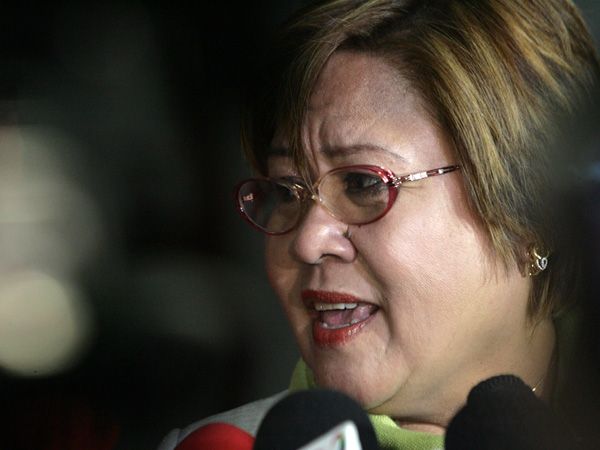MANILA, Philippines—Justice Secretary Leila de Lima on Saturday vowed that the constitutional rights of citizens in cyberspace will be protected in the implementation of the controversial Republic Act No. 10175 or the Cybercrime Prevention Act.
De Lima gave this assurance following the filing of at least five suits in the Supreme Court last week protesting the constitutionality of several provisions in the law that may infringe on the freedom of expression, of speech and of the press, the right to equal protection and due process, and the prohibition against double jeopardy and unlawful searches and seizures.
“Any power or authority granted by the law to the Department of Justice and the Secretary of Justice will be exercised judiciously and prudently, within the standards or parameters set forth in the law and with due regard to the fundamental human rights of individuals,” De Lima said in a statement.
De Lima, who chaired the Commission on Human Rights prior to her appointment as secretary of justice, was among the top government officials named as respondents in the petitions against the cybercrime law, which are expected to be tackled tomorrow by the Supreme Court in its regular en banc session.
Among the controversial provisions in RA 10175 is Section 19, which gives De Lima the authority to issue an order to restrict or block access to computer data which is found at first appearance to be in violation of the law.
The cybercrime law could see Internet users sentenced to 12 years in prison for posting defamatory comments on Facebook or Twitter.
The stated aim of the law is to fight online pornography, hacking, identity theft and spamming.
However, it also includes a blanket provision that puts the country’s criminal libel law into force in cyberspace, except that the penalties for Internet defamation are much tougher compared to the old media. With a report from AFP
